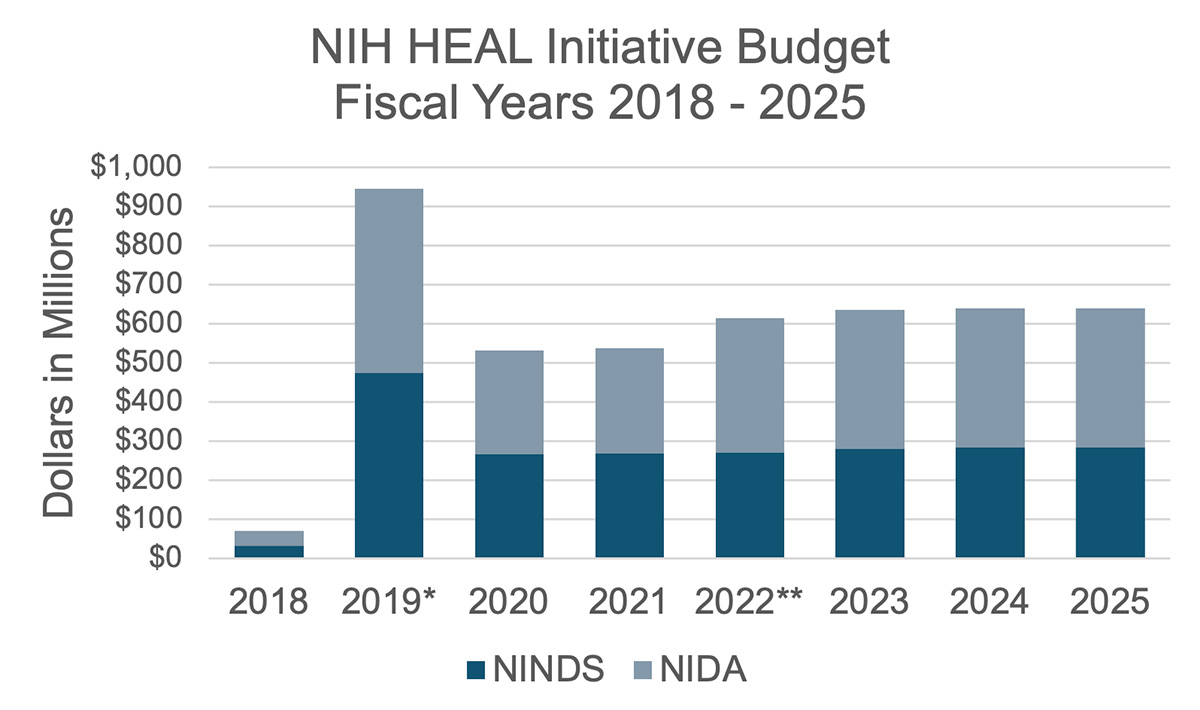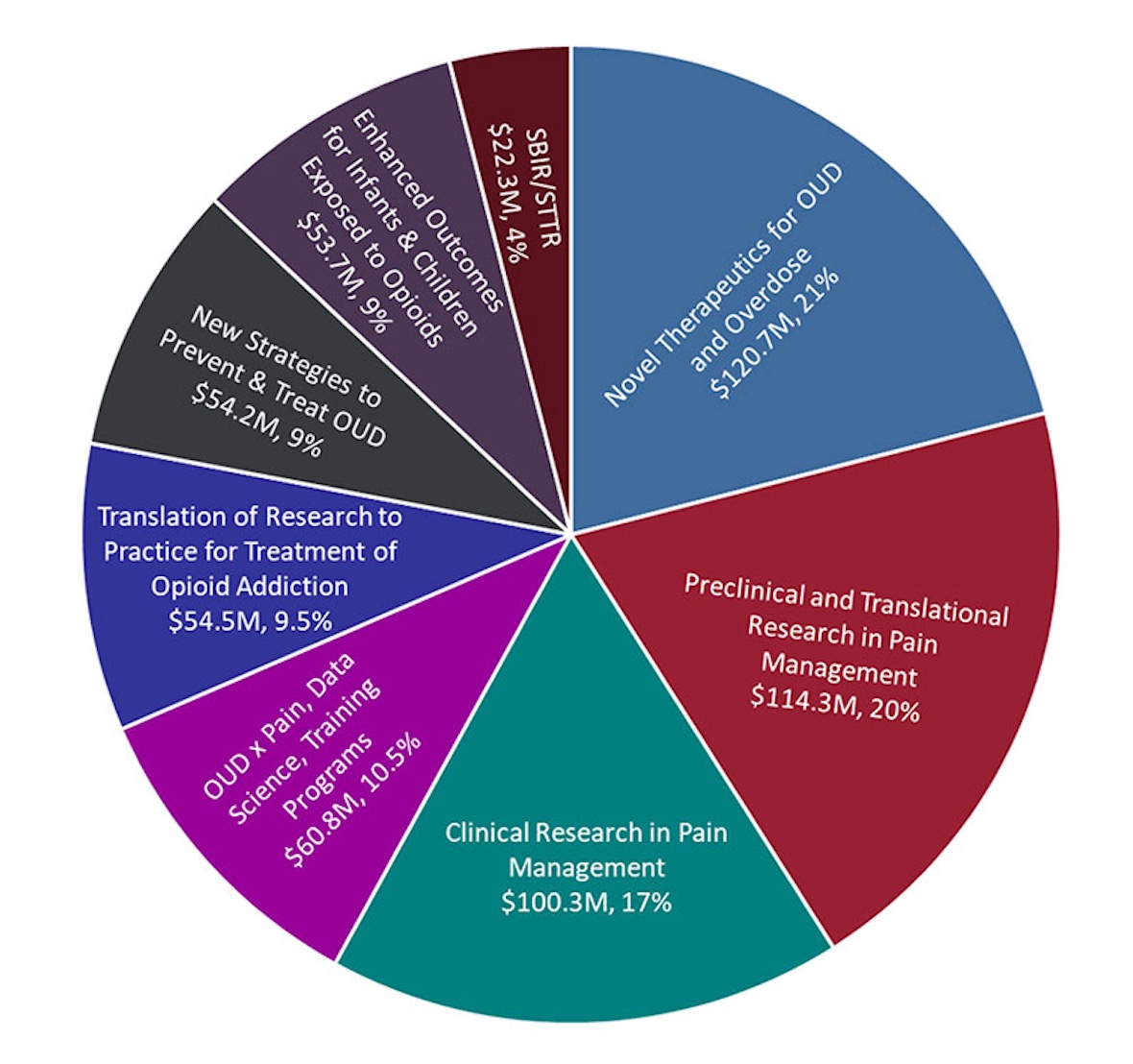NIH HEAL Initiative Budget
Understanding the HEAL Initiative Budget
Overview
The National Institutes of Health’s Helping to End Addiction Long-term® Initiative, or NIH HEAL Initiative®, is funded by Congress as distinct line items in the annual budgets for the National Institute on Drug Abuse (NIDA) and the National Institute of Neurological Disorders and Stroke (NINDS). Leadership at NIDA and NINDS jointly manage the HEAL Initiative, in close collaboration with partner NIH Institutes, Centers, and Offices (ICOs). NIDA leads HEAL research efforts concerning opioid use disorder and overdose while NINDS oversees HEAL research efforts to develop safe and effective therapies for acute and chronic pain to improve pain management.

HEAL Investment by Types of Research
Understanding and treating both pain and addiction are multidisciplinary endeavors that require cooperation and expertise from many different scientific areas. Accordingly, HEAL supports a variety of research approaches as exemplified by Fiscal Year 2024 (FY24) funding below (Figure 2).

HEAL invests in:
Novel Therapeutics for OUD and Overdose research that accelerates the development of treatments for all aspects of the opioid addiction cycle, including progression to chronic use, withdrawal symptoms, craving, relapse, and overdose - $120.7M, 21%.
Preclinical and Translational Research in Pain Management that addresses the challenges of poorly predictive animal models, changes in biopharmaceutical industry focus, and perceived regulatory and reimbursement concerns - $114.3M, 20%.
Clinical Research in Pain Management research that supports both new clinical trials and the expansion of existing programs to help establish evidence-based guidelines for treating pain with non-opioid therapies - $100.3M, 17%.
Crosscutting research that includes both OUD and pain-related research aims and data science and career development programs that represent priorities across the initiative - $60.8M, 10.5%.
Translation of Research to Practice for Treatment of Opioid Addiction research that seeks to better understand how promising, evidence-based interventions might help more people with opioid use disorder and evaluates implementation strategies for these interventions - $54.5M, 9.5%.
New Strategies to Prevent & Treat OUD research that contributes to developing new or improved prevention and treatment strategies for opioid addiction and co-occurring conditions such as mental illness and polysubstance use - $54.2M, 9%.
Enhanced Outcomes for Infants & Children Exposed to Opioids research that advances understanding of and evidence-based strategies for neonatal and early exposure to opioids - $53.7M, 9%.
Small Business Research Programs that support eligible United States small businesses developing innovative and commercializable technologies and products to prevent, diagnose, and treat opioid use disorder and overdose, as well as to enhance pain management - $22.3M, 4%.
 U.S. Department of Health & Human Services
U.S. Department of Health & Human Services
